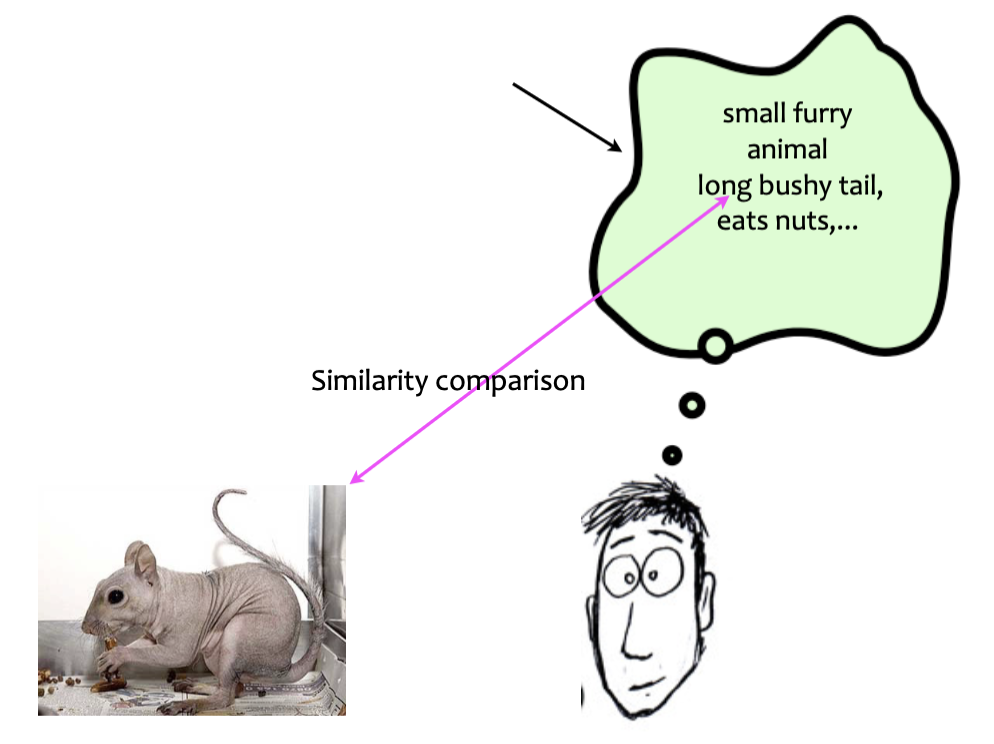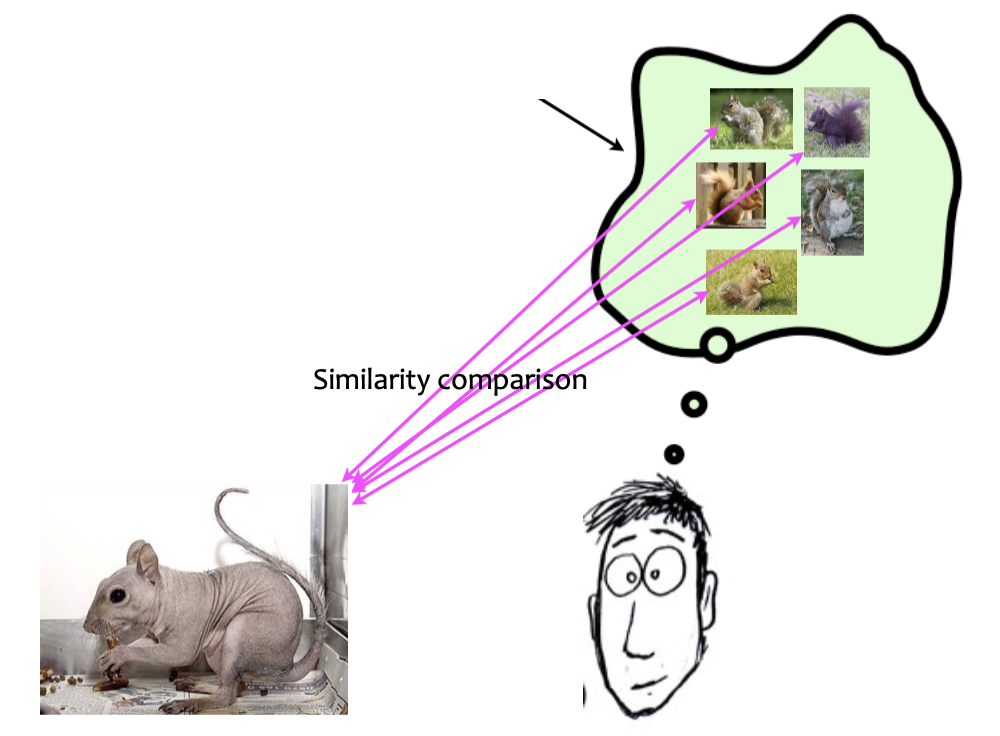Cognition Exam 2 (Final)
1/92
Earn XP
Description and Tags
done as the semester goes on.... (please be consistent)
Name | Mastery | Learn | Test | Matching | Spaced | Call with Kai |
|---|
No analytics yet
Send a link to your students to track their progress
93 Terms
Recency Effect
the last few items are recalled better (because they are still in the working memory)
Primacy Effect
early items are recalled better (because of less interference)
Working memory
part of a larger system of information currently available for processing
Interference
competition between items, decreasing the likelihood of consolidation
Rehearsal
repetition of an item to facilitate consolidation
Consolidation
movement of information from short term memory to long term memory
Encoding
representation of information to be consolidated
Failure to consolidate
You will not remember something because it never made it into the long term memory, totally forgotten
Failure to retrieve
its not totally forgotten because its in the long term memory, but it is in the large “heap” of information and cannot be accessed at the moment.
Retrograde amnesia
cannot remember events that happened before the trauma (backwards in time)
Anterograde amnesia
cannot form new memories/ cannot remember after the date of the trauma (forwards in time)
Hippocampus
performs consolidation
Procedural memory
is a type of long-term memory responsible for knowing how to perform certain skills and tasks, such as riding a bike or playing an instrument.
(task that can be performed without consious effort)
Declaritive memory system
learn by consolidting a skill, specific information about past events or experiences, and facts or general knowledge
Episodic memory system
Memory from personal experience, pov (remembering what happened as it happened to you)
Semantic (propositional/ conceptual) memory system
knowledge of ideas/ facts not tied to personal experiences
Verbal short term memory
“phone number memory”
verbal distraction interferes with this type of encoding
Tape loop metaphor
brief loop of media that holds something and is repeated over and over again
Mental Imagry
knowledge of the appearance of things
Imagistic representations
auditory or tactile direct sensory experience
Iconic representations
visual representation of what you are trying to represent
Propoisitonal representations
representations of ideas that have factual contexts (true or false)
Analog
real picture that can be transformed (rotated)
Kosslyn
representations of mental images are in fact not real images in your head but rather depictions that represent pictures
Pylyshyn
representations of images are propositional or descriptive
is_a chart
used to show the hierarchical representation of knowledge
Property inheritance
allows properties to be “known” without being directly stored/ stated
the direct property wins when…
there is a conflict between a direct (has_property) property and an inherited property
distinctive properties
property that contrasts with the general property of a category
(ex: penguins cant fly)
reconstructive memory
Drawing an inference from some clues and you infer something that you believe is true that might not be true
(many things you remember are just implied from things that you remember and it is not a direct memory)
deduction
reasoning that is logically certian
general —> specific
induction
reasoning that is not deductive (not guaranteed to lead to true conclusions)
using the information to form conclusions
specific —> general
it rained on Saturday
it rained on Sunday
—> it only rains on weekends?
Hume’s problem
will the sun rise tomorrow? The belief that the sun will rise tomorrow is not logically certain; it is simply likely, given our experiences
positive and negative examples
is a squirrel, not a squirrel
conjunctive conclusion
conclusion one and conclusion two
disjunctive conclusion
conclusion one or conclusion two
affirmation conclusion
only needs one conclusion
classical veiw
categories are logical constructs and have definitions
definition
lists necessary and jointly suffiecient features
Necessary
means simply you have to have it
jointly sufficent
if you have it (all of them), then you are in that category
prototype view
suggests that categories have prototypes and that the more something deviates from this prototype, the less typical it is, leading it to bleed out of the category
prototypification
the process of creating prototypes to allow you to understand a concept
exemplar model/ veiw
no abstraction or prototypes, but are instead stored examples to assist in understanding a concept
prototype veiw is considered
rationalist, we are creating something that isn’t purely in the outside world
exemplar view is considered
empiricist, and all we have are bunches of experiences that we are comparing to old experiences. this comparison will tell us how to react
prototype veiw as an image

exemplar view as an image

connectionism
simply all functions are associations
backpropagation
the method of changing the weights of ____ by a small amount so next time something is sent through the input the output’s error will be less
error
the degree to which the output was incorrect
supervised learning
somebody in the system knows that the correct answer is and will conduct backpropagation to fix errors
Oracle
knowing the correct, true answer
biological plausibility
system that is brain-like in its organization
parallel compuation
the idea that all units are working at the same time, working in parallel
distributed knowledge
knowledge is not one weight on one bit of information on one specific neuron
prescriptivist question
How should reasoning work?
descriptivist question
how does reasoning work?
degree of belief
a number no greater than one that shows how certain we are that something will happen or is true
conjunction rule
A probability principle states that the probability of two events occurring together is less than or equal to the probability of either event occurring alone.
disjunction rule
A probability principle states that the probability of either of two events occurring is greater than or equal to the probability of each event occurring alone.
bays rule
how to rationally figure out what we should believe conditioned to what we know and prior data
prior probability
intal degree of belief before considering data (or doing a “fact check”)
posterior probability
degree of belief after considering data (after doing a “fact check”)
likelihood probability
the probability of observing the data given a specific hypothesis
normative
standard way to inference that will give you an “objectively correct” answer
irrational
forming inferences in a way that is incoherent or internally inconsistent
rational self-interest
acting on their own behalf
fallacies
errors in reasoning that lead to invalid arguments or conclusions. (also known as cognitive illusions)
heurisitc
clever “hacks” and tricks that give you reasonable answers in many situations but are not really correct
gambler’s fallacy
the belief that past random events affect future probabilities in games of chance, leading to incorrect assumptions about outcomes. (example: coin gives out the following outcome HTHHHTHTHHHHHH. the person would say that tails is next because it is “due”)
Hot hand fallacy
the belief that a person who has experienced success with a random event has a greater chance of further success in the future. (Example: a basketball player making several consecutive shots is thought to be 'hot' and more likely to score again.)
Tversky and Kahneman are said to be ____
prescriptivists, and think that heuristics and biases are genuinely defective
Bayesian cognive science
the idea that the mind is approximately optimal in its use in its use of information
satisficing
doing something that is good enough, rather than doing something that is the best thing
availibilty heuristic
a mental shortcut that relies on immediate examples that come to mind when evaluating a specific topic, concept, method, or decision. (words starting with s vs words with s in the 3rd place)
bounded rationaility
the idea that in decision-making, cognitive limitations and constraints often lead individuals to make satisfactory rather than optimal choices.
productivity
make an infinite number of things out of a finite number of means (ex: english only has so many words and rules, and yet we always say new sentences)
ape language- skinner correct?
Basic learning mechanism is the same, and apes are actually smart
ape language- chomsky correct?
Human language involves complex syntactic structures, many of which are innate and specific to humans, so apes will not be able to do it
competence
abstract knowledge held by a speaker of the language: you must (implicit) know to distinguish sentences of the language from non-sentences
performance
the details that deviate from the ideal competence, and the actual mechanisms for carrying it out (speaking and language)
universal grammar
common structures that are common to all human languages
critical period
time period in which it is the easiest to learn a language
poverty of the similus
childs linguistic input, by itself, does not seem to be sufficient for the child to figure out the rules (informational poverty) [mathematically, blank slate learning is impossible]
phonology
The study of the sounds of language
morphology
construction of words using units, these units carry meanings
morphemes
pieces of words that hold meaning and can be combined to form words
ex: reviewed= re[again] + view [to look] + ed [past tense]
Syntax
ordering words to form sentences (grammar)
semantics
meaning and logical form (translating syntax to an actually meaning)
pragmatics
practical aspects of conversations (what do I say next?)
generative grammar
system for producing all and only he legal structures in the given language
comprehension
from a series of words to a ———